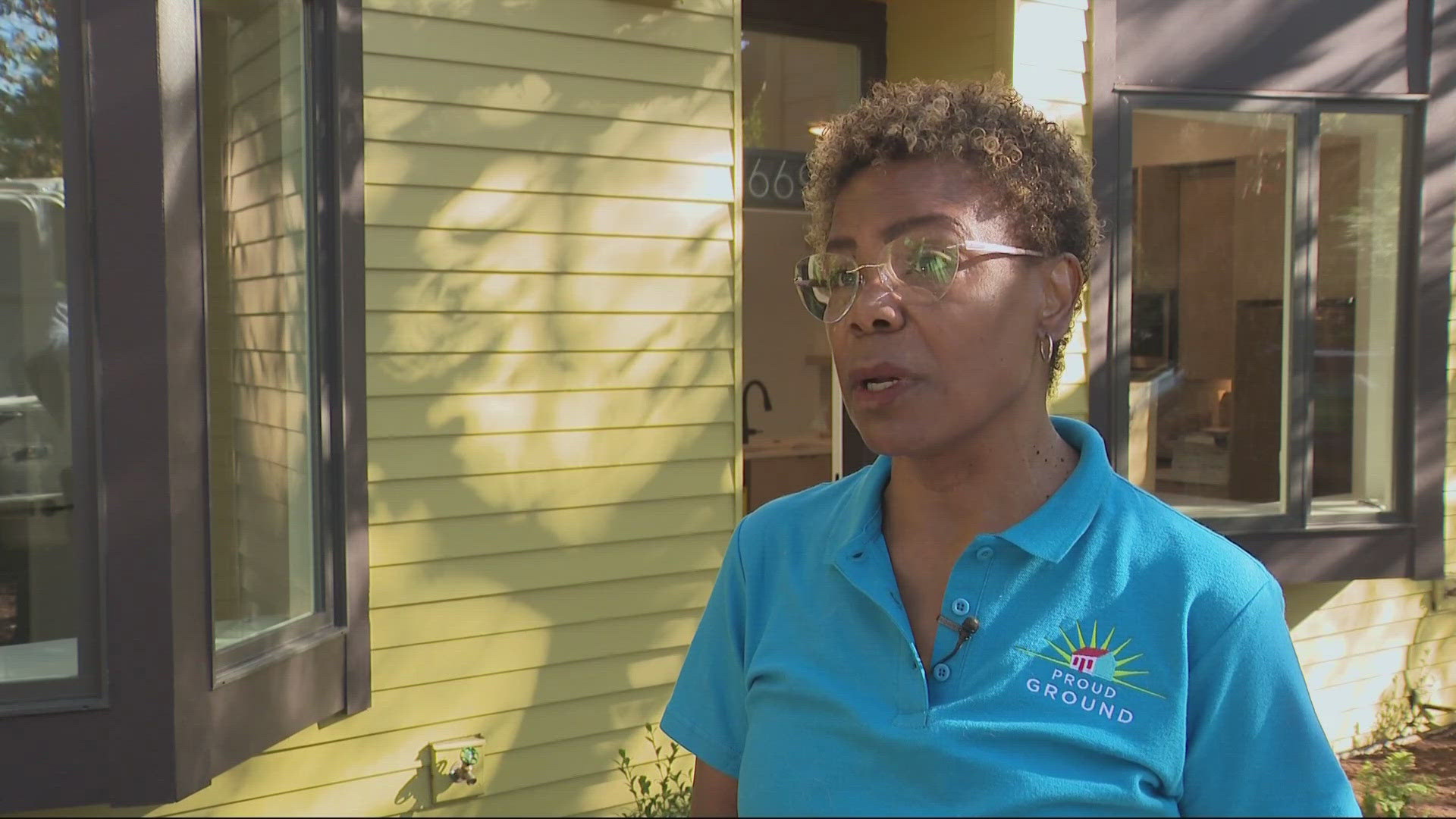These Portland townhomes aren’t just affordable for first-time buyers, they’re also net-zero homes

Affordable and Sustainable Townhomes in Portland
A half-dozen new townhomes now sit on the corner of Northeast Holman and 27th Avenue, offering affordable, energy-efficient options for first-time home buyers.
Introduction
Buying a first home can feel nearly impossible, even for families with moderate incomes. Even after the home is purchased, paying to keep it up can be another hurdle.
The Sustainable Development Goals
Now, a collaborative effort is creating sustainable options in a northeast Portland neighborhood. This project aligns with the following Sustainable Development Goals:
- No Poverty
- Decent Work and Economic Growth
- Sustainable Cities and Communities
- Climate Action
- Reduced Inequalities
The Concordia Townhomes Project
A row of a half-dozen townhomes on the corner of Northeast Holman and 27th Avenue are receiving the finishing touches. Three of the homes will be “permanently affordable,” thanks to a collaboration between the developer, Orange Splot LLC, and the nonprofit organization Proud Ground. Financial assistance from the Portland Clean Energy Community Benefits Fund (PCEF) has also played a crucial role in making these homes affordable and energy-efficient.
Benefits for Low- to Moderate-Income Families
The Concordia Townhomes project aims to make homeownership possible for working low- to moderate-income families. Roserria Roberts, Proud Ground’s homeownership program director, expressed her enthusiasm for this development, highlighting the high cost and low availability of housing. She emphasized the importance of providing affordable options, especially considering the diminished housing stock.
The Portland Clean Energy Community Benefits Fund
The Portland Clean Energy Community Benefits Fund, a voter-approved effort, subsidizes the construction of affordable homes that are also energy efficient and net zero. Shannon Todd Roth, PCEF’s senior clean energy manager, explained that net zero means the homes generate as much solar energy as they use in a single year. This aligns with the goal of reducing greenhouse gas emissions and promoting clean energy.
Ultra-Low Energy Bills and Modern Amenities
The townhomes feature various energy-efficient technologies, including heat pumps, heat-pump water heaters, high-efficiency walls and windows, and solar panels. These features result in ultra-low energy bills for homeowners. Additionally, the homes are equipped with modern amenities such as Energy Star appliances and air conditioning. Despite their compact size (15 feet wide), the townhomes feel spacious and offer three bedrooms, making them suitable for families.
Affordability and Market Value
Thanks to the funding from PCEF, three of the townhomes are permanently affordable, priced at under $300,000. The other three will be sold at market value, which is a little over $400,000. Eli Spevak, the developer behind Orange Splot LLC, emphasized the importance of mixed-income projects and the significant cost savings compared to building single-family homes on the same lot.
Conclusion
The Concordia Townhomes project exemplifies the collaboration between developers, nonprofits, and community funds to create affordable and sustainable housing options. By addressing the challenges of housing affordability and energy efficiency, this project contributes to the achievement of the Sustainable Development Goals, particularly in the areas of poverty reduction, economic growth, sustainable cities, climate action, and reduced inequalities.
SDGs, Targets, and Indicators
1. SDGs Addressed or Connected to the Issues Highlighted in the Article
- SDG 1: No Poverty
- SDG 7: Affordable and Clean Energy
- SDG 11: Sustainable Cities and Communities
- SDG 13: Climate Action
2. Specific Targets Based on the Article’s Content
- SDG 1.4: By 2030, ensure that all men and women, in particular the poor and the vulnerable, have equal rights to economic resources, as well as access to basic services, ownership, and control over land and other forms of property.
- SDG 7.2: By 2030, increase substantially the share of renewable energy in the global energy mix.
- SDG 11.1: By 2030, ensure access for all to adequate, safe, and affordable housing and basic services and upgrade slums.
- SDG 13.2: Integrate climate change measures into national policies, strategies, and planning.
3. Indicators Mentioned or Implied in the Article
- Indicator 1.4.2: Proportion of total adult population with secure tenure rights to land, with legally recognized documentation, and who perceive their rights to land as secure, by sex and type of tenure.
- Indicator 7.2.1: Renewable energy share in the total final energy consumption.
- Indicator 11.1.1: Proportion of urban population living in slums, informal settlements, or inadequate housing.
- Indicator 13.2.1: Number of countries that have communicated the strengthening of institutional, systemic, and individual capacity-building to implement adaptation, mitigation, and technology transfer.
Table: SDGs, Targets, and Indicators
| SDGs | Targets | Indicators |
|---|---|---|
| SDG 1: No Poverty | 1.4: By 2030, ensure that all men and women, in particular the poor and the vulnerable, have equal rights to economic resources, as well as access to basic services, ownership, and control over land and other forms of property. | 1.4.2: Proportion of total adult population with secure tenure rights to land, with legally recognized documentation, and who perceive their rights to land as secure, by sex and type of tenure. |
| SDG 7: Affordable and Clean Energy | 7.2: By 2030, increase substantially the share of renewable energy in the global energy mix. | 7.2.1: Renewable energy share in the total final energy consumption. |
| SDG 11: Sustainable Cities and Communities | 11.1: By 2030, ensure access for all to adequate, safe, and affordable housing and basic services and upgrade slums. | 11.1.1: Proportion of urban population living in slums, informal settlements, or inadequate housing. |
| SDG 13: Climate Action | 13.2: Integrate climate change measures into national policies, strategies, and planning. | 13.2.1: Number of countries that have communicated the strengthening of institutional, systemic, and individual capacity-building to implement adaptation, mitigation, and technology transfer. |
Source: kgw.com








